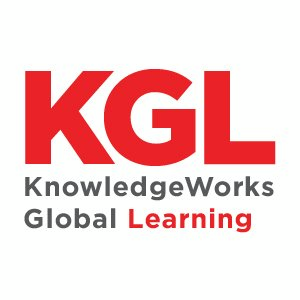ATD Blog
Inclusive and Sustainable Learning Strategies for the Modern Workforce
Thu Jan 06 2022

As the global learning and performance landscape evolves, organizations are challenged to develop inclusive learning strategies that reflect learner needs, business goals, and cultural considerations. Can a successful learning strategy be developed for the modern workforce using the same approaches without understanding the latest advancements? With a heavy dependence on the 70-20-10 model as the foundation for many plans, organizations are looking for an augmented method to ensure sustainable success. Whether you are considering a 55-25-20 learning approach or some form of it, there are important factors to address for a scalable and effective learning strategy in 2022.
Learning Disruption
With the inundation of new virtual requirements on today’s learning ecosystems, organizations are looking for viable approaches that align more strategically with business goals. Considering a 55-25-20 learning framework that focuses on 55 percent experiential learning, 25 percent social learning, and 20 percent formal learning can support the virtual workforce better by identifying appropriate blended approaches that learners will embrace more readily, which will improve productivity. Not all organizations are ready for a 55 percent focus on experiential learning, but a move in this direction will prompt greater performance results. Immersive solutions such as business simulations and scenario-based learning offer a micro approach, which resonates with learners and increases engagement and retention. Augmented and virtual reality (AR, VR) also provide an immersive experience that improves the quality of learning by basing it on real-world business circumstances.
Cultural Evolution
With a diverse and geographically dispersed workforce, how do learning leaders create a value-based learning culture? Employee inclusion is essential and enables learners to contribute to content curation and continuous learning. Collaborative learning and employee feedback provide insight into learners, critical for enhancing cultural and learning understanding. It is important to provide robust analytics to bring leaders into a value-based growth mindset. With the recent focus on upskilling and reskilling, performance outcomes are key for reaching business goals and demonstrating a shared vision. Successfully creating a continuous learning culture will transform a business into a true learning organization committed to constant improvement while looking to the future.
Advancements in Technology
Digital transformation, learning experience platforms (LXP), artificial intelligence, machine learning, immersive ecosystems, big data, and analytics are leading trends the learning industry has witnessed over the last couple of years. How do these developments affect planning for a sustainable learning strategy? Not all organizations are ready to delve into progressive learning technologies, but awareness is vital for building a scalable and sustainable learning blueprint. Learner data and analytics are the foundations of a successful learning strategy but depend on the technology used by the organization, what learning data is captured, and how measurable outcomes are produced against business goals. Data is crucial—lack of proper insight into employees’ performance has always been a challenge for learning leaders to secure the budget for transforming an organization into a full learning culture.
Learning leaders’ roles have changed to meet the demands of evolving business requirements. Roles that once included a learning focus now encompass talent and change management or even marketing, both internally and client-facing. Learning ecosystems are becoming leaner with streamlined performance technology and multifaceted integrations with content providers. Mobile learning has become more prevalent and so has cyber security training as a result. With a wider view of performance management, learning strategies for the modern workforce feature more flexibility and adaptability than ever before.

